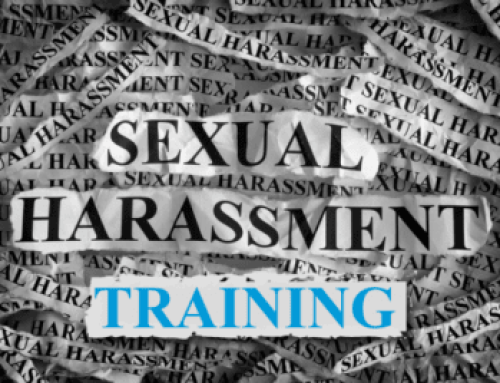Overview:
Yes, we know COVID isn’t over yet. However, it looks to be on a significant downturn and will hopefully be in our rearview mirror sooner rather than later. Restaurant owners have (painfully) learned a lot over the past few years, with many restaurants going out of business. Now is the time to regroup, reflect, synthesize what we have learned, and move forward into 2023 with strength and resolve.
Perhaps the most important thing that budding (and seasoned) restaurateurs can do is strongly negotiate the lease agreement and be willing to find a different location if the landlord demands “standard” pre-COVID terms. Other key issues to address in your strategic planning are the following:
- People. Human resources management (hiring, firing, laying off, furloughing, etc.);
- IP. Intellectual property protection and licensing (preserve and expand the brand);
- Alcohol. Effective use of loosened alcohol-related rules (use them if/while you can);
- Insurance. Re-think and adjust your policies (stay flexible and have a trusted insurance agent);
- OA. Finely tune the business terms and contingencies in your Operating Agreement;
- Money. Conservatively project, liberally budget, and build cash reserves; and
- Asset Protection. Get your personal house in order (and as creditor-safe as possible).
If COVID has taught us anything, it’s that we were woefully unprepared to deal with a widespread pandemic with concomitant government-mandated shutdown orders. And that lesson, unto itself, should be enough to highly motivate us to do the following:
- Be Paranoid. Transform our mindset from one of “everything should be fine” to “everything could easily fall apart;”
- Prioritize. Prioritize what really matters to sustain a profitable business endeavor (namely, a well-negotiated lease, robust cash reserves, and effective employee management). Of course, great food, attentive service, a convenient location, and an inviting ambience don’t hurt either;
- Stay Nimble. The true “ninjas” of business are able to pivot quickly and always find the lowest hanging fruit before others even find the tree; and
- Get a Lawyer. Invest in competent legal counsel to help you navigate the complexities (yes, we’re talking about before you sign any documents or start hiring people).
It’s All About The Lease:
A new era is here. Gone are the days of tenants being expected to blindly accept the “standard” lease terms. Just a few years ago, landlords would balk at proposed changes to the “force majeure” provisions of the lease. Now, they are forced to negotiate reasonable language in order to secure a sophisticated tenant. After all, the next major catastrophe should not result in a situation where the tenant must continue making all rent payments without receiving any income (or where income levels are significantly decreased).
To be fair, though, landlords should not be expected to always and forever be the 100% “guarantor” or “insulator” of their tenants’ problems. For instance, if a [fill-in-the-blank pandemic, terror attack, natural disaster, etc.] hits and a restaurant tenant is required to close (or manages to stay open but gets very little business), who should endure that “pain.” Should the tenant absorb all the pain insofar as it is still required to provide rent payments on-time and in full, essentially until it (and its personal guarantor) goes bankrupt? Or should the landlord absorb all the pain insofar as all rent payments during the pendency of the “disaster” are forever forgiven…and, meanwhile, the landlord is paying all of its bills (taxes, insurance, maintenance, etc.)?
As is most often the case, the answer usually lies somewhere between the extremes. Perhaps the parties could split the pain through a rent reduction strategy. Perhaps rent could be deferred. Or maybe rent could be restructured to encompass a percentage of tenant’s profits. There are several options (with many derivations within each option) to consider, which we addressed in a prior post. Also addressed in that prior post are the following key concepts that restaurant tenants must keep in mind while strongly negotiating their lease agreement: force majeure; impossibility; frustration of purpose; interruption in services; “go dark” provisions; continuous operation provisions; and “good guy” guarantees.
For catering or event contracts, always get a sizeable advance deposit and include provisions to the effect that (i) you cannot be sued if a “force majeure” incident prevents the event from occurring, (ii) the client is required to reschedule the event if possible, and (iii) you get to keep the deposit if the event is not rescheduled. For partner/investor agreements, always try to share the financial burden and refrain from bearing personal liability alone. Capital call provisions should be carefully negotiated to ensure that an influx of cash arrives if/when needed. Also, consider a provision disallowing cash distributions to the restaurant entity’s investors unless/until the entity has reached a certain minimum level of cash reserves. Remember that cash is king, especially in a catastrophe.
Landlords who fail to negotiate reasonably and in good faith during the lease drafting process will likely also fail to act reasonably and in good faith during the lease term. Now read that sentence three more times and let it really sink in. It is not always true, but it is true most of the time. Of course, if the premises at issue is just so perfect for your restaurant and you absolutely have to get it, well, then, maybe you will be willing to bend on some otherwise sticking points. Just know what you are getting yourself into.
Properly Manage Your People:
We’re talking about human resources management here – things like hiring, firing, laying off, and furloughing employees. It is wise to always be ready to quickly furlough or layoff employees if a “force majeure” event or other issue causes the restaurant to shut down or scale back. Staying ready generally means knowing the process and having the applicable documents at the ready (pro tip: don’t draft these yourself based off a template you found online, as they might not fully address your unique situation or comply with your local laws).
A furlough is a temporary and unpaid leave during which your employee technically remains in the payroll system, but in an unpaid status. This is similar to an extended schedule cut due to a temporary closure caused by inclement weather, a utility outage, or some other problematic event. When a business furloughs its employees via a temporary closure or severe cutting of staff hours, the intention is to bring the employees back to work when it is feasible to do so. A layoff, however, is a non-performance related termination that can either be permanent or temporary. In a layoff, employees must be paid out their applicable PTO, sick leave, etc., and they are provided with written notices of termination. We have posted articles on many employment-related issues here, here, and here.
Whether you plan on hiring, firing, laying off, or furloughing any employees, the key is to have a clear strategy, comprehensive legal documents that cover the bases, and open communication. For example, if you know that major schedule changes and/or cutbacks are coming down the pipeline, let your employees know in advance instead of blindsiding them when the tidal wave hits. Not only is this the “right” thing to do in terms of the moral arc of the universe, but it can also give you some lead time to find additional workers (assuming that some of the existing staff decide to quit).
Work with legal counsel to ensure you always have up-to-date, complete, and accurate personnel files, job descriptions, onboarding packets, and employee handbooks. This will allow prompt and accurate written communications to the staff regarding their employment status and, when the time is right (such as at the end of a furlough period), it will enable you to quickly bring them back on board.
IP Protection and Licensing:
Preserve and expand your brand. A company’s most valuable intangible assets are its intellectual property and goodwill. Ideally, the intellectual property (such as the trademarked name and logo) should belong to you and be held in your individual capacity (or through an entity that you solely own and control). Then, you can enter into non-exclusive licensing deals with the entity(ies) that own/operate your restaurant(s).
Sometimes, however, investors will demand that the IP be owned by the restaurant entity they will be investing in (typically an LLC). They want to own a piece of the company that holds that valuable IP. This isn’t wrong and sometimes even necessary to attract the investors you want. If that is the case, make sure it is clear that the company can license the IP to facilitate brand expansion. Assuming you have managerial control (or at least a strong “pull” in that department), then you would play a significant role in determining when and how those external licensing deals occur.
Keep the Booze Flowing:
Let’s be real: alcohol sales are absolutely critical to the success of nearly all full-service restaurants. During “normal” times it is easy to take this for granted, as patrons sit around crowded tables and bars while they eat, drink, and be merry. During the hard times (think 2020 COVID shut-downs), we watch masked strangers pick up food and high-tail it back home while our alcohol sales are reduced to zero or suffer greatly. Because COVID isn’t over yet, there may still be time to take advantage of loosened alcohol-related restrictions.
In California, for example, SB 389 (effective January 1, 2022) allows any licensed “eating place,” as well as any beer manufacturer, wine manufacturer or craft distiller that prepares and serves food on-site, to sell takeout alcoholic beverages as long as customers buy their drinks with food. This applies to beer, wine, liquor, and mixed drinks. Some of the key features of that law are as follows: (i) takeout drinks must be sold with a bona fide meal and are limited to two drinks per meal; (ii) takeout drinks must be sold in the manufacturer’s prepackaged containers or in containers with secure lids or sealed caps; (iii) takeout cocktails cannot contain more than 4.5 ounces of liquor; (iv) takeout wine can only be sold in single-serve containers; and (v) all takeout alcohol containers must be clearly labeled as containing alcohol. This law doesn’t expire until December 31, 2026, and is set to expand.
Of course, each jurisdiction is different, and your state (and local) laws must be well understood and followed. But if your restaurant can take advantage of laws such as these, then by all means update your “to-go” menu (both physical and online) and let your customers know what’s possible.
Constantly Evaluate Your Insurance Policies:
Insurance is great (and mandatory in many cases – think about your lease terms), but it needs to be finely tuned, tailored to your circumstances, and re-visited from time to time. Savvy restaurateurs will contact their trusted insurance agent about these things:
- Umbrella Policy: With so much outdoor/patio dining occurring, all of the nearby pedestrian, bicycle, and vehicular traffic could create potentially unsafe conditions for your patrons and employees. Consider adding umbrella coverage for these risks to help cushion your business in the event someone is injured (or worse).
- Alcohol Coverage: Make sure your “dram shop” insurance accurately reflects and fully covers your activities. If you are sending patrons home with drinks, your policy needs to cover that.
- Outdoor Space: Many restaurants have built beautiful outdoor dining areas, but they forget about ensuring that those valuable assets are folded into their insurance coverage. Simply adding additional value coverage to your existing property insurance plan will usually do the trick.
- EPLI: Don’t forget about Employment Practices Liability Insurance (EPLI). Defending a wrongful termination claim is painful and expensive. With all the furloughs, layoffs, shift-reductions, and straight-up firings happening during uncertain times, wrongful termination claims have been on the rise and will continue to be a concern. EPLI also helps protect employers against wage and hour, discrimination, sexual harassment, and ADA claims.
- Mid-term Audit: Ask your insurance company to conduct a mid-term audit. If you can reduce the business’ projected sales of food and/or liquor (due to what you see coming down the pipeline), then the insurance premiums may be able to be reduced.
- In Case of Shut-Down: If you need to shut-down, consider changing your policy to a non-operational or “vacant space” policy. These policies can be written (very inexpensively) on a 3-month short term basis and could save many hundreds (or thousands) of dollars during downtimes.
- Business Interruption / Loss of Income: Many commercial leases require that tenants have business interruption insurance, which generally covers financial loss (including rental payment obligations) caused by direct physical loss or damage to the premises from a covered cause of loss. While most policies exclude coverage for claims caused by virus, pandemics, etc., some insurance companies narrow such exclusions through optional endorsements. It doesn’t hurt to keep asking your insurance broker whether any insurance company is now offering business interruption insurance that provides more liberal coverage.
Customize Your Operating Agreement:
While the standard “legalese” in an OA is certainly there for a reason, it doesn’t address the specific deal points agreed upon by the members/owners. If your restaurant is owned by an LLC with two or more members, the OA must accurately describe the terms of the business arrangement among the owners as well as address several contingencies that might seem crazy to even consider at the outset of the venture.
Here are just some of the topics to cover: (i) death of a member; (ii) capital calls (and potential “punishment” for failure); (iii) membership transfers; (iv) new members / new money (further dividing the overall “pie”); (v) management issues, roles, and responsibilities (and breaking gridlock); (vi) cash distributions (timing and terms – think “phantom income”); (vii) cash reserve requirements; (viii) banking access; (ix) non-compete clause; (x) profits interests (or “phantom units”); (xi) indemnification; and (xii) IP ownership and licensing issues.
There are many amazing restaurateurs who are great at creating brands, finding and building out space, coordinating relationships with suppliers, hiring and training employees, etc. But the details of an OA are just too much to handle with everything else going on. So what happens? They will sometimes use an OA from a prior deal (or find a template online) and spend a couple hours tweaking the terms. Needless to say, this usually results in a woefully deficient document. And when (not if) there is a dispute and the terms are scrutinized later, the attorneys on both sides will be wondering what went so wrong with the initial drafting of the agreement. The OA is one of THE MOST important documents (along with the lease), so it deserves our utmost attention to detail.
Be Conservative With Money:
There is no time like the present to re-shape our relationship with money and make sure we know exactly where it is coming from and where it is going. In the final equation, “money-in” versus “money-out” is really all that matters. Be sure to maintain your current banking relationships and develop others within your network to have an opportunity to obtain financing. If a loan is needed to bridge a gap, you will be thankful that you know where to get the funds and how to close quickly.
With respect to operational matters, we should always conservatively project, liberally budget, and build cash reserves. You’d be hard-pressed to find an investor who disagrees with that. Also, because your OA was carefully drafted with input from the investors, no one will balk when you restrict cash distributions until a certain reserve amount is established. Even capital calls (and their parameters) will be more palatable and fully understood. Of course, capital calls should typically be avoided if possible, which is why it is important to stay ahead of the curve and have a true understanding of the financials of the restaurant’s operations. Engaging a professional bookkeeping service can help owners see the “big picture” as the target moves along which, in turn, enables the execution of intelligent real-time decisions based on the facts.
Cover Your Assets:
Asset protection is something we hear about but might not fully understand how to do. If we can get our personal house in order (and as creditor-safe as possible), then we will sleep better at night. The key to many of these strategies is implementing them before getting bogged down by debt. Once the debt is there and starts crushing us, it’s too late to try to move around or “hide” assets to avoid creditors (this is often called a “fraudulent conveyance”). So, before we get too deep in the debt-laden woods, here are some considerations:
- Marital Home. Depending on the state in which the property is located, married persons who hold a certain type of joint title to their primary residence receive special protections from creditors. Of course, there are exceptions to these rules, so check with your estate planning attorney.
- Other Houses; Cars. Assuming your spouse is not involved in your restaurant venture (e.g., is not a part-owner), all cars and other houses should probably be in their name only. In a community property state, a transmutation agreement can even be signed to relinquish your 50% community property interest in those assets (if you are comfortable with that). Other estate planning documents can be drawn up which counter-balance these measures.
- Retirement Accounts. Many of these are outside the reach of creditors. If you are not already maximizing your contributions, consider doing so. And if you can establish additional retirement accounts, consider that as well.
- Living Trusts. These are complex legal instruments that should be drafted by specialists in that field. Each state has different laws, so your trusts, wills, and other estate planning documents should be drafted by an attorney in the local jurisdiction where those laws will apply.
- Gifts to Family. By gifting money to family members (including your children), you divest yourself of that cash. Of course, it won’t be your cash anymore, but would you rather fund your child’s endeavors or your creditor’s next vacation (or attorneys’ fees)? Many years later, if your child independently and voluntarily decides to gift you some money (maybe you fall on hard times), then you will be happy that your generosity created another generous person.
Before you do anything, though, consult with an estate planning (and bankruptcy) attorney about these complex issues and your unique circumstances, then develop and implement your own asset protection plan.
Conclusion:
Now is the time to take what we learned during the past few years and turn that knowledge into doable action-items for 2023. Leases will be negotiated stronger. Operating agreements will be drafted more precisely and comprehensively. It is time to get dialed in on all things human resources, IP, and insurance. Restaurants will be operated like well-oiled machines and profit margins will exceed projections. Investors will be happy and offer to fund additional ventures. And all the while, due to your healthy level of paranoia, you’ll be ready if everything falls apart. Plan for the worst; hope for the best. Cheers to the successful manifestation of your true potential as a restaurateur!







